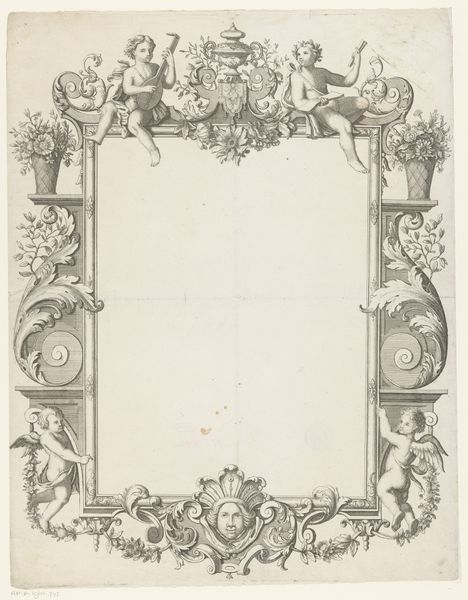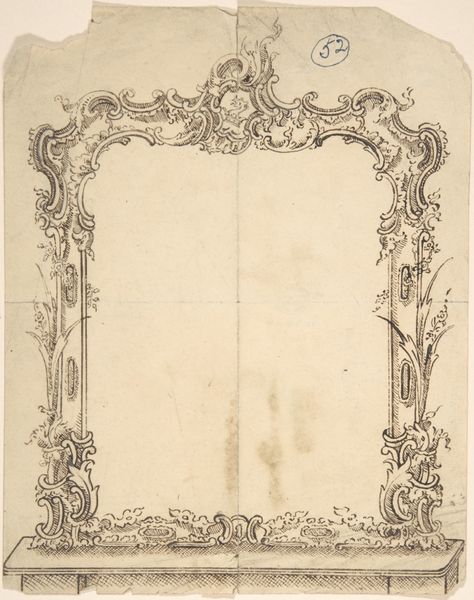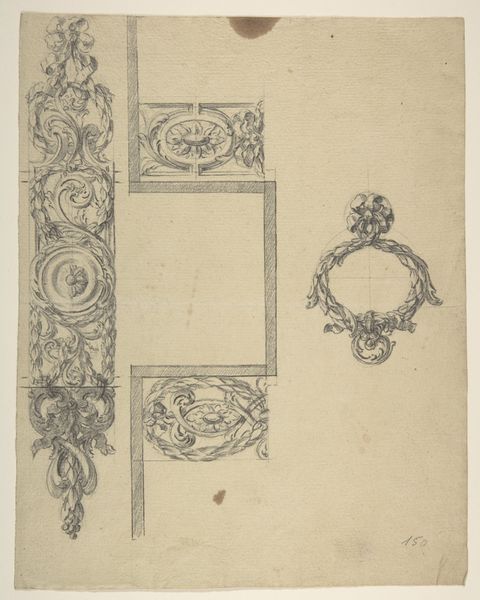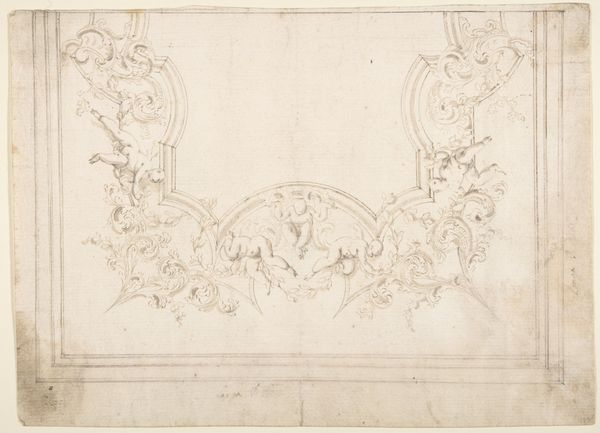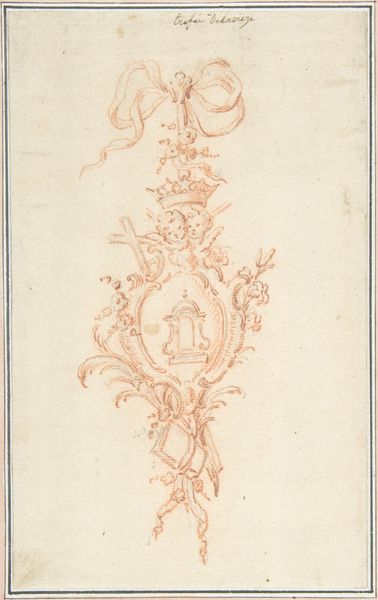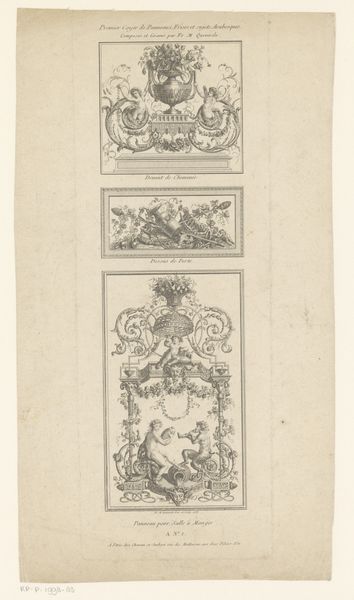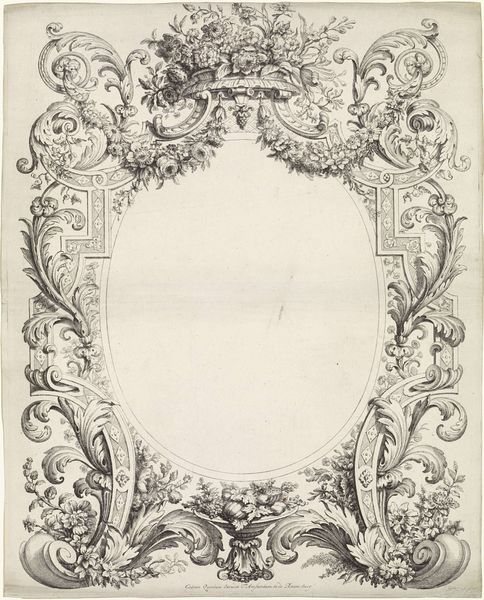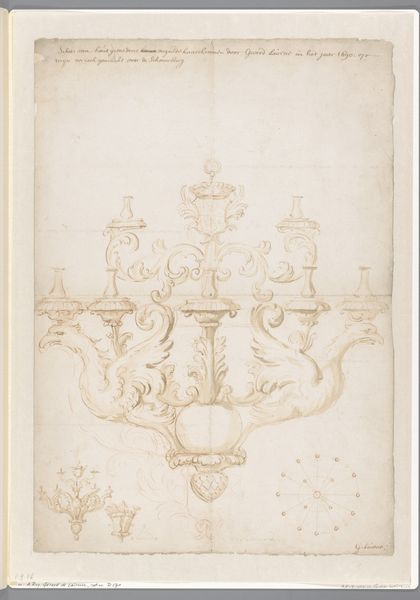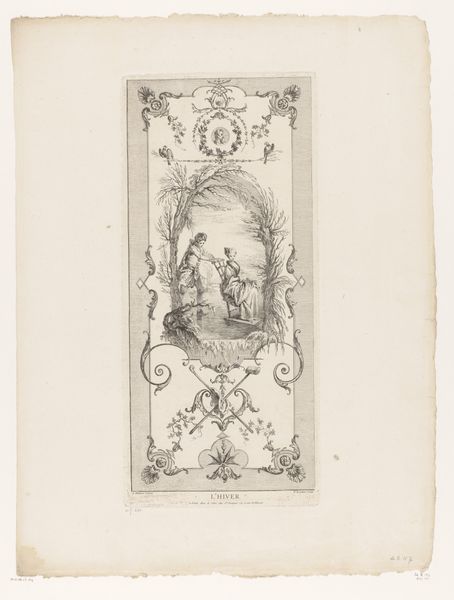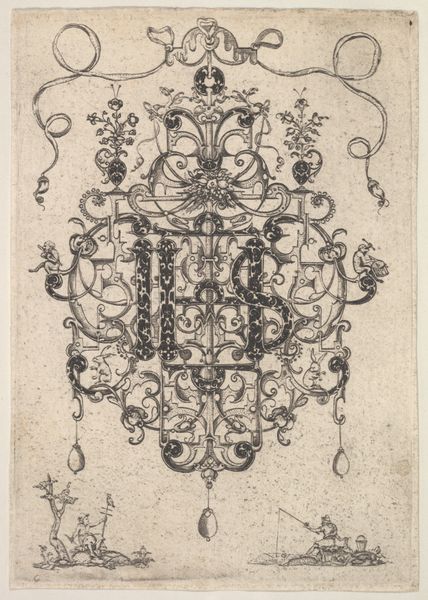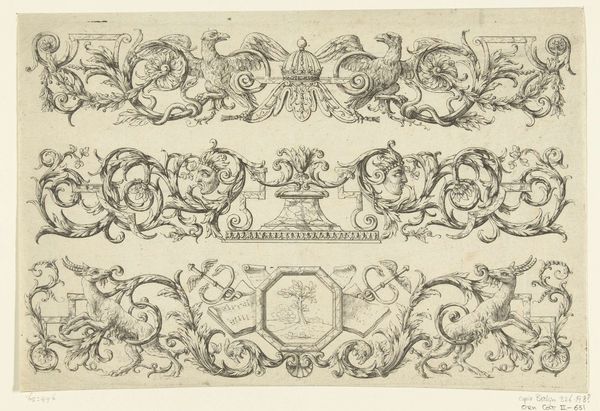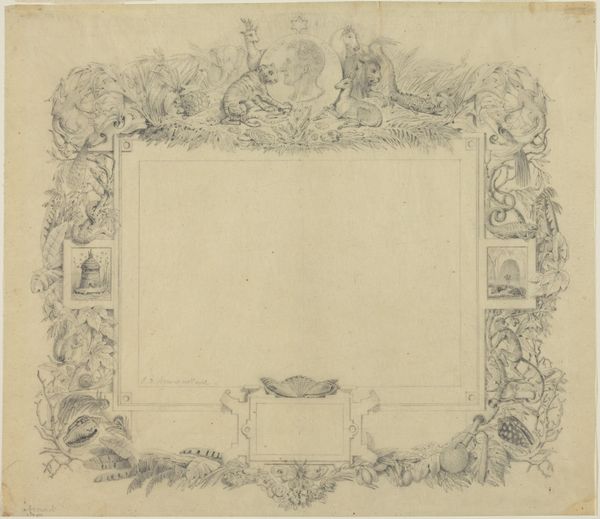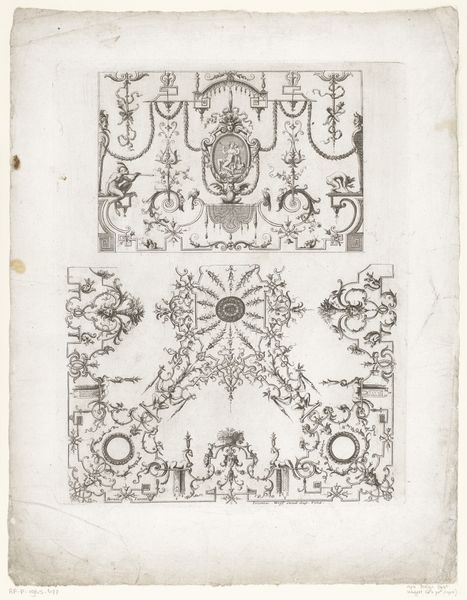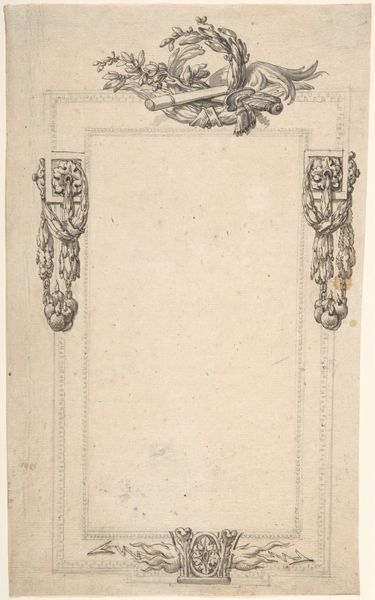
Design for the Stucco Decoration of a Rococo Ceiling 1755
0:00
0:00
drawing, ink, pen
#
drawing
#
pen drawing
#
ink
#
geometric
#
pen
#
decorative-art
#
rococo
Dimensions: 18 7/16 x 13 1/4 in. (46.8 x 33.7 cm)
Copyright: Public Domain
Editor: This is "Design for the Stucco Decoration of a Rococo Ceiling," a pen and ink drawing by Johann Oktavian Salver, from around 1755. The elaborate, swirling forms look incredibly detailed. What strikes you about it? Curator: What strikes me is less the “what” and more the “how”. Think about the material conditions that made this design possible. The quality of the paper, the ink, the artist's tools – even the light in his studio. Editor: I hadn’t thought of it that way. Curator: Rococo was about ostentatious displays of wealth. This drawing is a commodity itself, yes, but it’s also a plan for further production – the stucco ceiling. Who were the artisans who would execute this design? What were their working conditions? Their pay? The Rococo style became ubiquitous throughout Europe, what does its popularization mean? Editor: So you’re saying we shouldn't just admire the artistry, but consider the social and economic systems that made it all possible. The access to materials, and labor? Curator: Precisely! Where did Salver get his ink? How was it made? What was the societal role of decorative plasterers at the time? Those who consume art often do not give much thought to those who labored and gave art life with their own hands. These designs were never intended to be viewed simply as aesthetic objects – it misses the intent behind the construction. Editor: I see, focusing on the means of production gives a totally different meaning. Thank you for broadening my perspective. Curator: Indeed. And it allows us to truly appreciate, I think, not just the artistry, but the complex web of human effort embedded within.
Comments
No comments
Be the first to comment and join the conversation on the ultimate creative platform.
